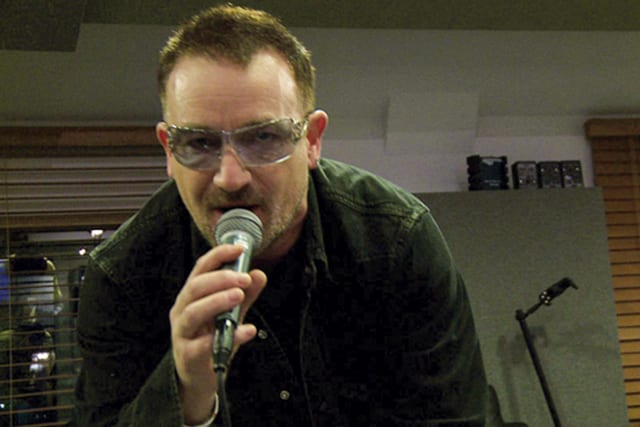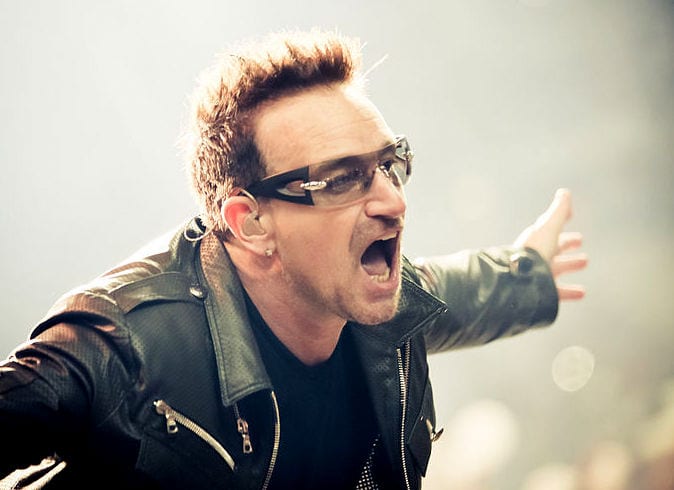Biography
Singer, poet, activist, and believer: few icons in the history of rock & roll have created and performed their art with the consciousness and passion of Bono and only a handful have done it as successfully. The first and only frontman for the Irish rock band U2 has always stood unequivocally for hope, faith, and love — and in so doing has touched millions of people worldwide.
The band that would become U2 formed in October 1976, after drummer Larry Mullen Jr. placed a note on his high school bulletin board seeking musicians for a rock group. Bono, along with guitarist Dave Evans and bassist Adam Clayton, made the cut at the first meeting in the drummer’s kitchen. Although he couldn’t sing, Bono’s commanding personality landed him the job as frontman. Within four years it would become one of the most recognizable voices in popular music.
Bono’s resume includes an exhaustive section on social activism. In 1984, he appeared on Band Aid’s charity recording “Do They Know It’s Christmas?” After U2’s historic Live Aid performance in 1985, Bono traveled to Ethiopia with his wife Ali. There they spent several weeks helping with an education and famine relief project. Then, in 1986, U2 headlined Amnesty International’s Conspiracy of Hope tour.
Bono’s most extensive social campaigns have been Jubilee 2000 and ONE that was formed in 2002. These projects are orchestrated to cancel third world debt, help fight AIDS in Africa, and advocate an end to poverty. During the Jubilee 2000 campaign, Bono spoke before the United Nations and the United States Congress and met with key figures such as Pope John Paul II and Bill Clinton.
How we met:
Playing For Change was first introduced to Bono through our friend and partner, Norman Lear, who sent Bono a DVD of some of the songs around the world. We later met with Bono to discuss the potential of him singing on “War No More Trouble.” After a brief meeting we set a plan in motion, and later recorded and filmed his performance on the song in Dublin, Ireland.

